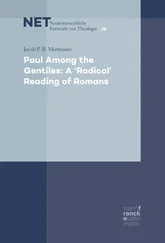Charles Gore - St. Paul's Epistle to the Romans - A Practical Exposition. Vol. I
Здесь есть возможность читать онлайн «Charles Gore - St. Paul's Epistle to the Romans - A Practical Exposition. Vol. I» — ознакомительный отрывок электронной книги совершенно бесплатно, а после прочтения отрывка купить полную версию. В некоторых случаях можно слушать аудио, скачать через торрент в формате fb2 и присутствует краткое содержание. Издательство: Иностранный паблик, Жанр: foreign_religion, foreign_antique, foreign_prose, на английском языке. Описание произведения, (предисловие) а так же отзывы посетителей доступны на портале библиотеки ЛибКат.
- Название:St. Paul's Epistle to the Romans: A Practical Exposition. Vol. I
- Автор:
- Издательство:Иностранный паблик
- Жанр:
- Год:неизвестен
- ISBN:нет данных
- Рейтинг книги:3 / 5. Голосов: 1
-
Избранное:Добавить в избранное
- Отзывы:
-
Ваша оценка:
- 60
- 1
- 2
- 3
- 4
- 5
St. Paul's Epistle to the Romans: A Practical Exposition. Vol. I: краткое содержание, описание и аннотация
Предлагаем к чтению аннотацию, описание, краткое содержание или предисловие (зависит от того, что написал сам автор книги «St. Paul's Epistle to the Romans: A Practical Exposition. Vol. I»). Если вы не нашли необходимую информацию о книге — напишите в комментариях, мы постараемся отыскать её.
St. Paul's Epistle to the Romans: A Practical Exposition. Vol. I — читать онлайн ознакомительный отрывок
Ниже представлен текст книги, разбитый по страницам. Система сохранения места последней прочитанной страницы, позволяет с удобством читать онлайн бесплатно книгу «St. Paul's Epistle to the Romans: A Practical Exposition. Vol. I», без необходимости каждый раз заново искать на чём Вы остановились. Поставьте закладку, и сможете в любой момент перейти на страницу, на которой закончили чтение.
Интервал:
Закладка:
May we not truly say that deeper and maturer study of St. Paul has for us undercut and antiquated the theological standing-grounds of the sixteenth century, and substituted for them something both truer, completer, and freer?
It only remains to make more emphatic what has been already suggested, that the Pauline doctrine of justification is of much more than antiquarian interest. We do not, as has been already shown, get rid of the 'danger of thinking to be saved by works' because we are not, like the Pharisees, abandoned to ecclesiastical observances. All moral codes or standards, sanctioned by a society or class and involving no more than a limited liability, come under the moral category of 'works of a law.' They all are apt to leave men as independent of God as the Pharisees, and as resentful of the fuller light. The late Master of Balliol expresses a characteristic opinion that the notions of 'legal righteousness,' or of 'the pride of human nature,' or 'the tendency to rebel against the will of God, or to attach an undue value to good works 41 41 He should say, if he would represent St. Paul, 'works,' not 'good works.'
,' are 'fictions as applied to our own time 42 42 Essay on 'Righteousness by Faith,' in Epistles of St. Paul (Murray, 1894), vol. ii. p. 264. The whole essay is very characteristic and very interesting, but not very Pauline.
.' But this is surely lamentably untrue. Men all round us dread the idea of committing themselves to God. They do not know how far it will carry them. They are like would-be soldiers who should refuse to enlist till they had had some assurance as to the extremest risk that their service might involve. Thus, because they cannot get this assurance, they will make no beginning of the life of real faith. They live by a limited code which retains their independence for them. If they are also ecclesiastically minded, the 'legal righteousness' always involved in this sort of morality becomes even outwardly more like that of the Pharisees, and it is not very uncommon among churchmen. But the whole habit of mind, inside or outside the area of professed churchmanship, has its root in what is properly and profoundly human pride and the false clinging to independence of God. This 'pride of life' seems to be almost more dangerous and, in fact, disastrous than even 'the lust of the flesh and the lust of the eyes.' Thus if we can only get St. Paul's doctrine of the necessity of faith rightly understood, there is no teaching more necessary for these times.
And, on the other hand, where men are really ready to follow the light and do God's will, they need – they need exceedingly for the good of the whole body – to realize St. Paul's teaching about justification, that is, about God's constant attitude towards men, in order to obtain that peace which is meant to be, not the far-off goal of Christian life, but its basis and foundation. When a person is continuously apprehensive and excited about his spiritual state, he is not in the temper of mind in which he can best serve God or work out his own or other men's salvation. 'Peace must go before as well as follow after; a peace, too, not to be found in the necessity of law (as philosophy has sometimes held), but in the sense of the love of God to His creatures. He has no right to this peace, and yet he has it.' In these words of the same writer whom we just now were obliged to criticize we may find a simple expression of the truth. 'Wherefore, being accepted of God simply because we take Him at His word, let us have and hold peace with God through our Lord Jesus Christ 43 43 Rom. v. 1.
.' Then we can throw ourselves without embarrassments into the life of love and sacrifice, the life which has the love of God in Christ for its motive, and reflects it among men.
No doubt we must admit that St. Paul's doctrine of justification has not been generally appreciated in the Church – the fact is strange, but it is indisputable. No doubt also we must admit that those who have chiefly been identified with it have often even disastrously distorted it. No doubt, as a result both of this neglect and of this distortion, the ordinary religious Englishman of the present day is disposed to pass it by as having little meaning for him. Nevertheless it remains true that no revival of religion can ever attain to any ripeness or richness unless this central doctrine of St. Paul's gospel resumes its central place with us also. For, as St. Paul preached it, it means this above all else – personal devotion to Jesus Christ as our redeemer. This personal devotion begins by accepting from Him the unmerited boon of forgiveness of our sins, and (what is only the other side of such forgiveness) inheritance in the consecrated body. But the consciousness of what we have received from Christ, and the price it cost Him to put it at our disposal, gives to the whole subsequent life the character of a devotion based on gratitude. This is the Christian life according to St. Paul – personal devotion to Christ and personal service based on gratitude for what He has done for us. 'For the love of Christ constraineth us; because we thus judge, that one died for all, therefore all died; and He died for all, that they which live should no longer live unto themselves, but unto Him who for their sakes died and rose again.'
CHAPTER I. 1-7.
Salutation
It was the custom in the days of the Romans to begin a letter with a brief indication from whom it came and to whom it was addressed, in the form of a complimentary salutation, thus – to take an example from the New Testament – 'Claudius Lysias unto the most excellent governor Felix, greeting 44 44 Acts xxiii. 26.
.' We are familiar in our day with the like forms for beginning and ending letters, serving the same purpose and generally no other. St. Paul then accepts the epistolary form of his day, but pours into it an increasing wealth of personal meaning 45 45 The salutation of the First Epistle to the Thessalonians, the earliest epistle, is the most nearly formal. Those to the Romans and to Titus are the fullest and richest.
. Thus in this place the necessary address – 'Paul the apostle to the believers in Jesus Christ which are in Rome, greeting' – is expanded into a salutation extraordinarily full of meaning, explaining (1) who it is who writes the letter; (2) with what justification; (3) to whom; and (4) with what greeting.
(1) It is Paul who is writing, and he describes himself both personally and officially. Personally, since the day when he surrendered himself on the road to Damascus, he has been 'the slave of Jesus Christ,' bound in all things to do His will, and exulting all the time in the moral liberty which that bondage gave him. Officially, he has received a commission and an office equal to that of the older apostles in the kingdom of Christ: he has been 'called to be an apostle, separated to proclaim the good tidings of God.'
(2) It is then this glorious commission that justifies his writing. These good tidings of God are the fulfilment of an age-long promise for which the world had been waiting. Of ancient days there were 'prophets,' men commissioned to speak for God, whose writings remained after them and are held in highest reverence as 'holy scriptures.' These men foretold good days from God that were to come to His people in the coming of the divinely anointed king, the Christ. And now they are come. God has sent to redeem men not a servant, but His own Son. True, He came as man among men: as one of the royal house of David, the house from which the Christ was promised; yet simply man in outward nature and appearance, or 'according to the flesh.' But besides that ordinary seeming manhood, there was in Him something higher – a sacred spiritual nature. And this higher nature it was that finally determined the estimate in which He was to be held. If 'according to the flesh' He was a man of David's house, according to this 'spirit of holiness' He was decisively designated by God's own act as Son of God in miraculous power, and that especially when He was made the example of a resurrection from the dead. Thenceforth 'Jesus' of Nazareth is 'Christ' and 'the Lord' of Christians. It is He through whom St. Paul and his fellows received the outpouring of the divine bounty for their own lives, and their apostolic commission on behalf of the name of Christ to bring all the nations of the earth to the obedience of faith. And this commission extends as far as the Roman Christians and justifies St. Paul in writing to them.
Читать дальшеИнтервал:
Закладка:
Похожие книги на «St. Paul's Epistle to the Romans: A Practical Exposition. Vol. I»
Представляем Вашему вниманию похожие книги на «St. Paul's Epistle to the Romans: A Practical Exposition. Vol. I» списком для выбора. Мы отобрали схожую по названию и смыслу литературу в надежде предоставить читателям больше вариантов отыскать новые, интересные, ещё непрочитанные произведения.
Обсуждение, отзывы о книге «St. Paul's Epistle to the Romans: A Practical Exposition. Vol. I» и просто собственные мнения читателей. Оставьте ваши комментарии, напишите, что Вы думаете о произведении, его смысле или главных героях. Укажите что конкретно понравилось, а что нет, и почему Вы так считаете.












